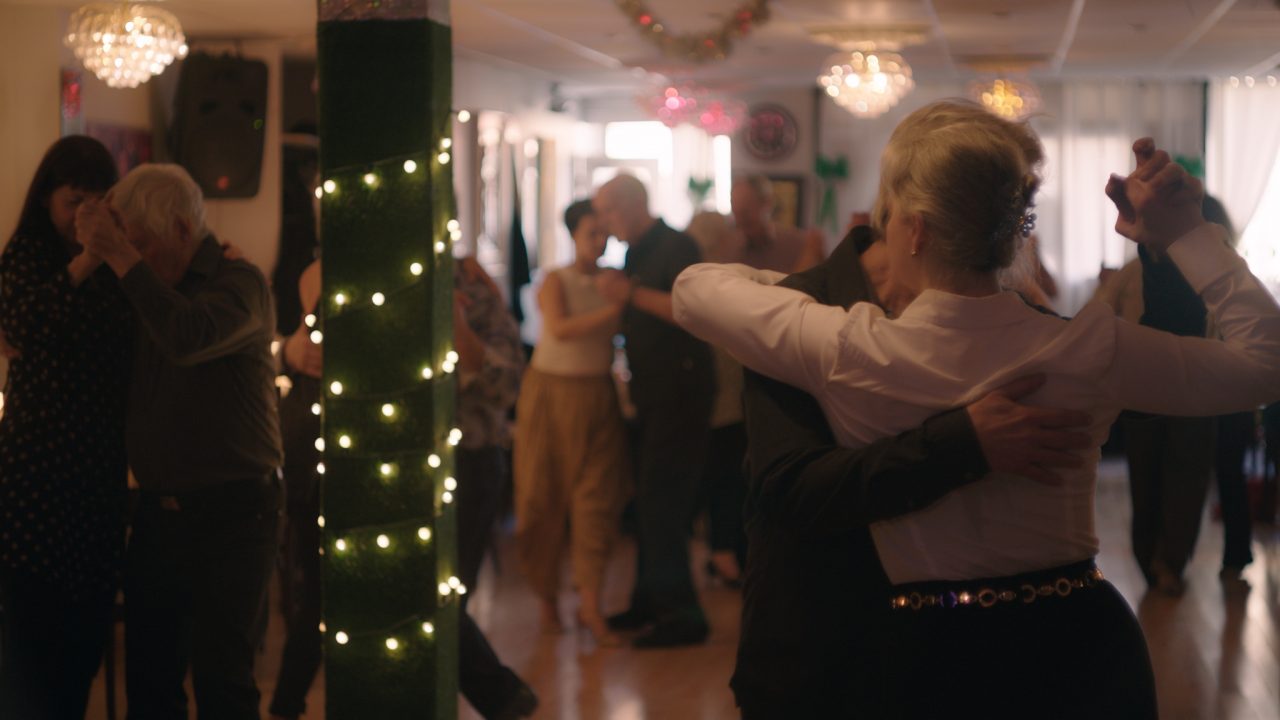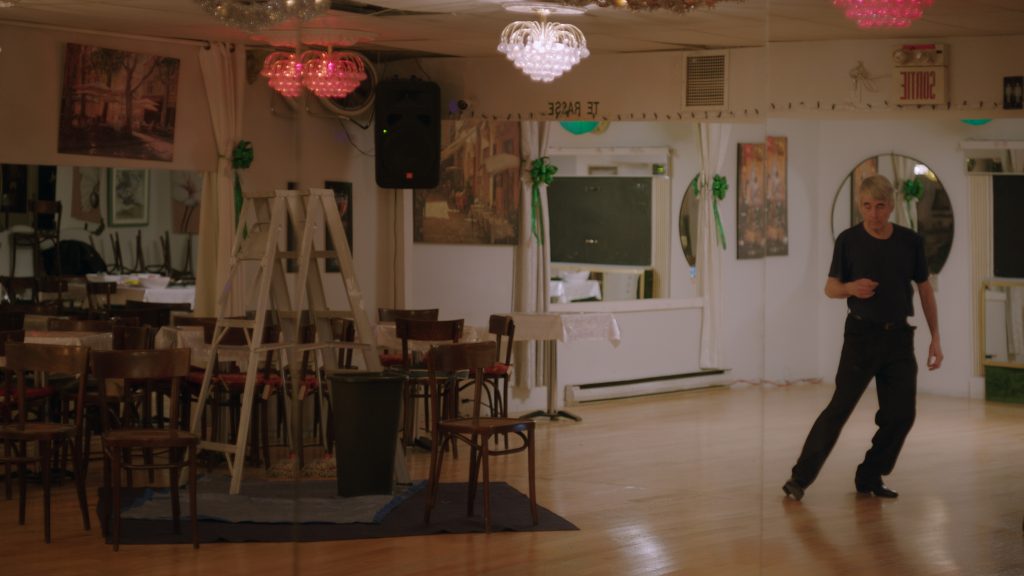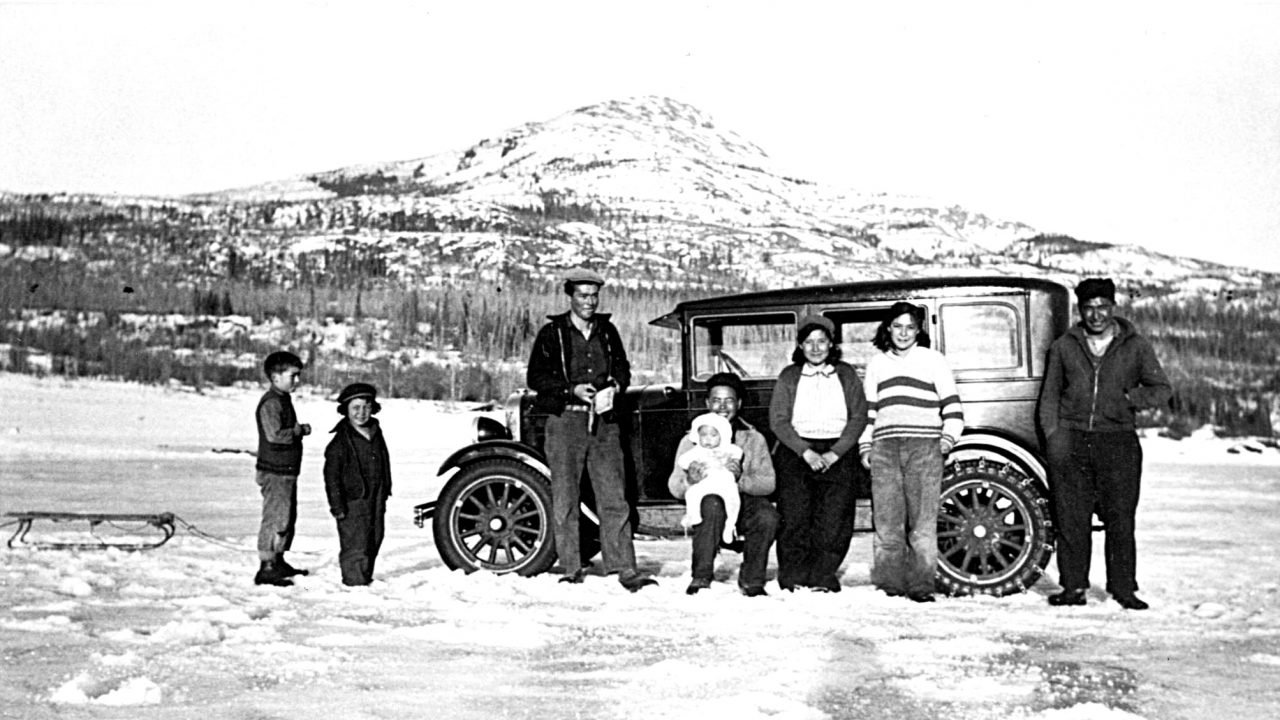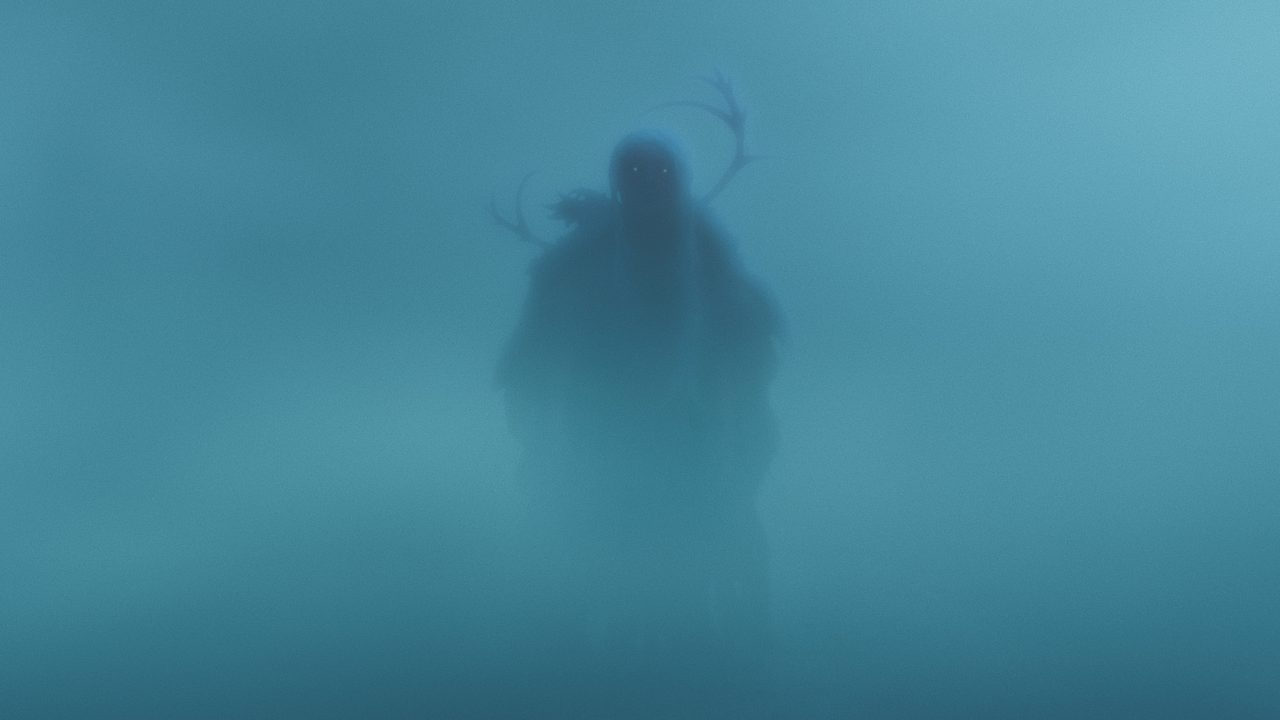
Saturday Night: “People are my true homeland”
Saturday Night: “People are my true homeland”
A short documentary essay on solitude, filmed in Spanish and narrated by filmmaker Rosana Matecki, Saturday Night (2021) offers a poetic and bittersweet snapshot of aging in an urban setting, viewed through the lens of dance.
Rosana Matecki (RM) is a Canadian filmmaker of Venezuelan and Polish origin. Her decades-long career has been devoted to creating independent cinema. As a director, writer and producer, Matecki has focussed on experimenting with the non-fiction format, making films in Canada, Bolivia, Venezuela, Colombia and Cuba. Saturday Night, which she wrote and directed, is her first collaboration with the NFB. The film is now available on nfb.ca.
You’ve always taken a strong auteur approach to your work. Why have you decided to concentrate on intimate storytelling in non-fiction cinema?

RM : Being an auteur means having a vision and going on a journey with it. Documentary is a living form, and I think it’s more ambitious than fiction. It allows us to get closer to other people’s lives. In my case, those lives are usually very different from mine. Thus, it’s important that whoever chooses to participate in the experience internalizes the exercise of becoming actors in their own realities. I find it fascinating to come across people who are vast sources of energy. Each person with their own references. Like people in love, the idea is to seduce them so that they understand what you’re searching for in them. We accompany each other on the journey and we all learn a lot along the way, especially during the shoot. Shooting always encourages/motivates me to continue creating and growing as a filmmaker. It’s the moment when I know that I’m doing what I was meant to do.
I don’t see cinema from a rational point of view, but as the desire to create a space where your dreams can inspire your everyday life. I learned that I wanted to be a filmmaker during a difficult moment in my life. When I emerged from that transition, I started to make the films I wanted to make. I am also truly obsessed with memory. It torments me. If what we were no longer exists, what are we, then? What part of us survives and what part does not, and how do we tell those stories?

Diasporas are complex processes of displacement, belonging, integration and return. After more than 20 years in Canada, do you think your identity and your filmmaking practice are still divided between here and elsewhere?
RM : I think we are migrating our entire lives. I do not understand diaspora in terms of being from one place or from another. Of course, it took time and experience to have that realization. I describe it as a hallucination or a dream. It is not a homeland but just another world. I might be a mixture of Latin American, North American and European, but people are my true homeland.
In your films, you empower historically marginalized characters. Why is this important to you?
RM : I feel great admiration for farmers, peasants and Indigenous communities. And I’m passionate about hardworking people who engage in physical labour. Effort and work lift us all up. That is why I chose Magaly for my film Saturday Night. She is a hairdresser who works in a grocery store. She also does cleaning jobs in Canada and runs a farm in Colombia. Working honours her beyond anything else. I met her the day Leonard Cohen died. After we talked for a while, she told me: “You see me, Rosana. Nobody sees me here.” We shared that feeling and understood each other right away.
What do you hope audiences will take away from watching Saturday Night?
RM : Loneliness is a recurring place that human beings stumble upon, time and time again. It is a sort of Wailing Wall, and we don’t seem to know what to do with it. This made me reflect on the fact that now that I’d lived in Canada for so long, I needed to look at this notion of loneliness in my own way. For a long time I resisted belonging. But then, what am I doing here? It was time for me to look at who I am in this place. The National Film Board of Canada understood this search and trusted my vision as a director. I wanted to find a bit of Latin America in Montreal. I finally found closure in doing this, which gave me an immense sense of freedom. I hope audiences feel that when they watch Saturday Night.
Watch Saturday Night:
Saturday Night, Rosana Matecki, provided by the National Film Board of Canada



